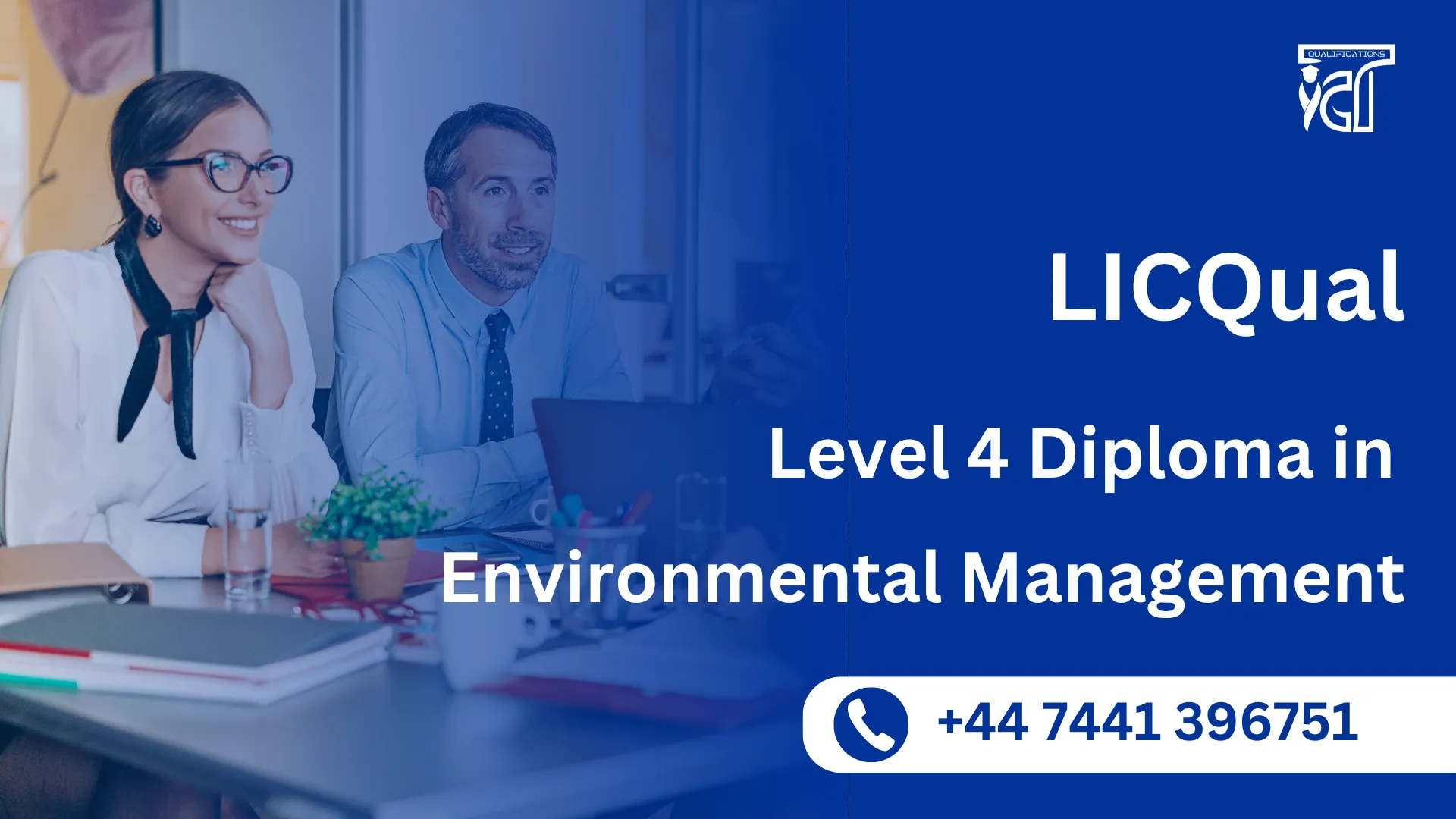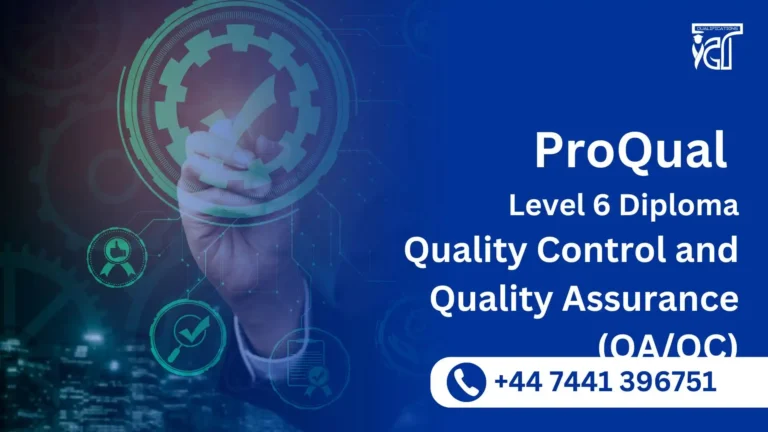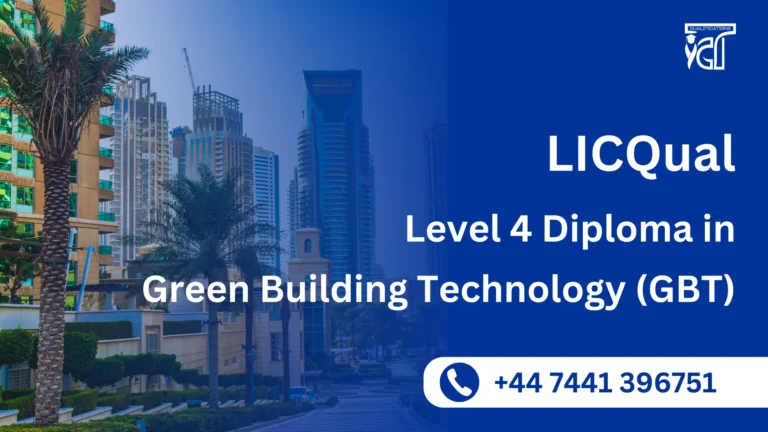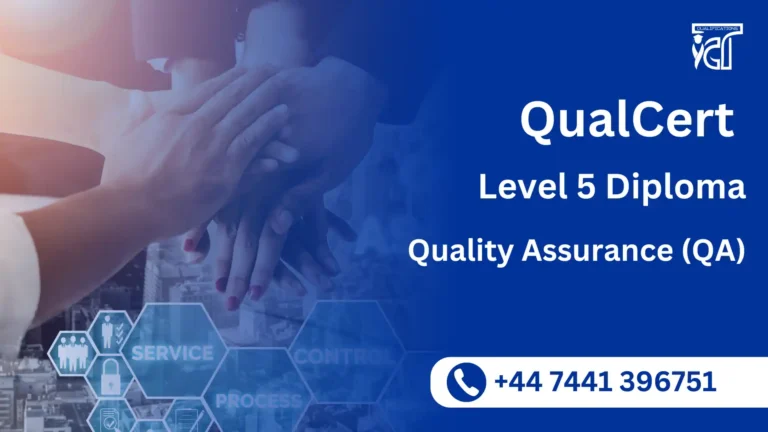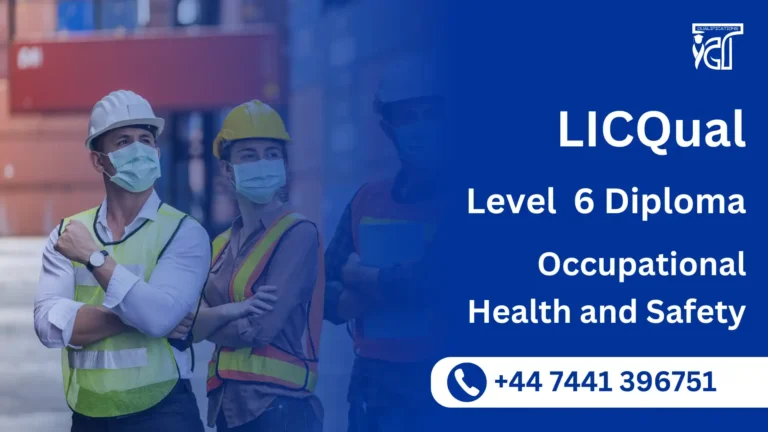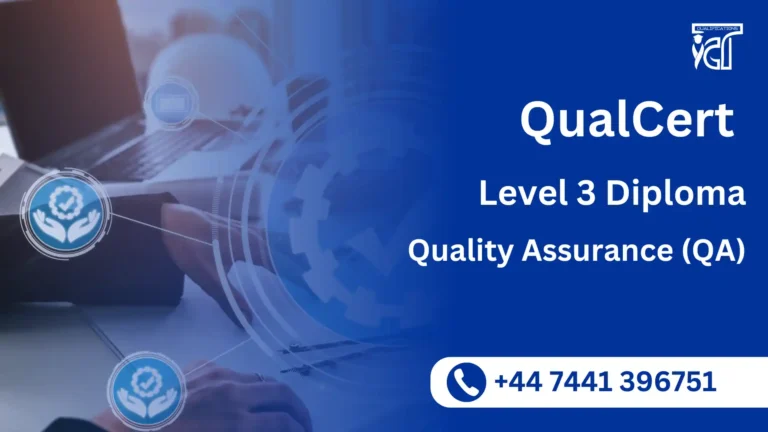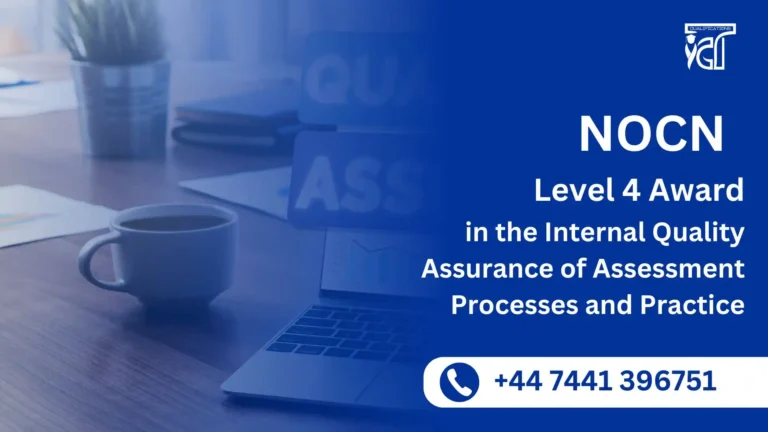In today’s rapidly evolving world, environmental sustainability has become a primary focus for businesses, governments, and organizations across the globe. The LICQual Level 4 Diploma in Environmental Management is a key qualification for those looking to make a positive impact in the field of environmental protection, sustainability, and compliance.
This Ofqual-regulated qualification offers students a deep understanding of environmental management systems and best practices, providing the necessary skills to help organizations manage their environmental responsibilities effectively. Whether you’re a professional in the field of environmental management or someone looking to transition into this dynamic sector, the LICQual Level 4 Diploma offers an excellent foundation for career growth.
The LICQual Level 4 Diploma in Environmental Management is designed to equip individuals with the expertise needed to understand complex environmental issues, manage environmental risks, and implement sustainability strategies. The course focuses on key areas such as environmental legislation, resource management, risk assessments, and the implementation of environmental management systems (EMS) to ensure compliance with national and international environmental regulations.
This qualification is assignment-based, meaning students can study at their own pace while applying practical knowledge directly to their professional roles. The flexible, real-world approach makes it ideal for professionals already working in the environmental sector who wish to advance their careers or enhance their qualifications.
The LICQual Level 4 Diploma in Environmental Management offers professionals the opportunity to gain comprehensive knowledge and practical skills needed to thrive in the field of environmental management. This qualification is an excellent investment for anyone looking to enhance their career while making a tangible difference in promoting environmental sustainability.
If you are looking to advance your career in environmental management, gain deeper insight into sustainability practices, and become a leader in reducing environmental impacts, the LICQual Level 4 Diploma is the perfect choice.
LICQual Level 4 Diploma in Environmental Management
Following are the mandatory units of LICQual Level 4 Diploma in Environmental Management:
| Unit Ref# | Unit Title | Credit | GLH |
| LICQ2200002-1 | Global Environmental Issues | 10 | 50 |
| LICQ2200002-2 | Introduction to Ecology and Conservation | 10 | 50 |
| LICQ2200002-3 | Marine Ecology and Freshwater Ecology | 10 | 50 |
| LICQ2200002-4 | Resource Management and Environmental Law | 10 | 50 |
| LICQ2200002-5 | Environmental Law | 10 | 50 |
| LICQ2200002-6 | Environmental Policy | 10 | 50 |
GLH (Guided Learning Hours) and TQT (Total Qualification Time) are terms commonly used in vocational qualifications to help define the amount of time a learner is expected to spend on their studies.
1. GLH (Guided Learning Hours)
GLH refers to the number of hours a learner spends being directly taught, supervised, or supported during their course. This includes the time spent in activities such as:
- Classroom instruction
- Practical workshops
- One-on-one tutoring or mentoring sessions
- Online learning sessions with tutor support
In other words, GLH represents the time that learners are actively engaged with their instructors or learning activities.
2. TQT (Total Qualification Time)
TQT represents the total amount of time a learner is expected to invest in completing a qualification, including:
- GLH (Guided Learning Hours): Time spent on direct learning, as explained above.
- Self-Directed Learning: This includes time spent on independent study, research, assignment completion, preparation for exams, and any other work the learner does outside of direct teaching hours.
TQT is a broader measure that includes all the time required to achieve the qualification. It helps learners and employers understand the overall commitment required for the qualification.
Key Differences Between GLH and TQT:
- GLH focuses on direct learning with guidance or supervision.
- TQT includes GLH as well as independent study time and other learning-related activities.
Example:
If a qualification has a TQT of 600 hours and a GLH of 250 hours, it means the learner should spend 250 hours in direct learning (classroom, online, or tutor-led sessions) and 350 hours on independent study or research.
By the end of this course, learners will be able to:
Global Environmental Issues:
- Understand the key global environmental challenges, such as climate change, deforestation, biodiversity loss, and pollution.
- Analyze the impacts of human activities on the global environment and assess strategies to mitigate environmental degradation.
- Evaluate the role of international agreements, conventions, and organizations in addressing global environmental issues.
Introduction to Ecology and Conservation:
- Develop a comprehensive understanding of ecological principles and processes, including ecosystems, biodiversity, and species interactions.
- Analyze the importance of conservation efforts and sustainable practices in maintaining ecological balance.
- Explore methods of conservation, including habitat restoration, species protection, and biodiversity management.
Marine Ecology and Freshwater Ecology:
- Understand the ecological characteristics of marine and freshwater ecosystems, including their biodiversity and environmental challenges.
- Assess the effects of human activities on aquatic ecosystems, including pollution, overfishing, and habitat destruction.
- Explore conservation and management strategies specific to marine and freshwater environments, aiming to protect and sustain these vital resources.
Resource Management and Environmental Law:
- Identify key resources (such as water, energy, and minerals) and analyze sustainable resource management techniques.
- Understand the role of environmental law in regulating the use of natural resources and promoting sustainability.
- Evaluate environmental policies, laws, and regulations at local, national, and international levels, and their impact on resource management practices.
Environmental Law:
- Examine the core principles and frameworks of environmental law, including regulations on pollution control, waste management, and environmental health.
- Understand the role of legislation in promoting corporate and individual responsibility toward environmental protection.
- Analyze key legal cases and their implications for the enforcement of environmental laws and the development of sustainable practices.
Environmental Policy:
- Analyze the formulation, implementation, and evaluation of environmental policies at various governance levels.
- Understand the relationship between environmental policy and sustainable development, focusing on balancing economic growth with environmental protection.
- Assess the effectiveness of environmental policies in addressing pressing issues such as climate change, energy consumption, and environmental justice.
Benefits of the LICQual Level 4 Diploma in Environmental Management:
1. Globally Recognized Qualification
The LICQual Level 4 Diploma in Environmental Management is an Ofqual-regulated qualification, ensuring that it meets high educational and professional standards. This certification is globally recognized, making it ideal for individuals who want to enhance their career prospects in the environmental management sector, both locally and internationally.
2. Enhanced Career Opportunities
With growing attention on sustainability, climate change, and regulatory compliance, the demand for skilled environmental managers continues to rise. By earning this Level 4 Diploma, you position yourself as a qualified professional, opening doors to advanced roles such as Environmental Manager, Sustainability Consultant, Environmental Compliance Officer, and Environmental Auditor in various industries.
3. Practical, Industry-Relevant Knowledge
The course equips you with the practical, hands-on skills needed to address real-world environmental issues. From conducting environmental audits to managing sustainable resource practices, this course ensures you are prepared to meet the challenges of today’s dynamic environmental landscape.
4. Comprehensive Understanding of Environmental Legislation
The diploma covers key environmental laws, regulations, and policies that govern industries worldwide. By understanding environmental legislation, students are equipped to ensure compliance and mitigate legal risks, which is crucial for businesses aiming to operate sustainably while avoiding costly fines or sanctions.
5. Expertise in Environmental Auditing and Risk Management
Students will gain advanced knowledge of how to conduct environmental audits, assess environmental risks, and implement risk mitigation strategies. This expertise is vital for ensuring that organizations meet legal requirements and corporate sustainability goals while minimizing their ecological footprint.
6. Focus on Sustainability and Resource Management
The course emphasizes sustainable resource management, including strategies for reducing waste, conserving energy, and optimizing the use of resources. These skills help organizations become more environmentally efficient, resulting in cost savings and improved public reputation as a sustainable business.
7. Flexible, Assignment-Based Learning
The assignment-based learning approach offers flexibility, enabling students to study at their own pace while balancing work and personal commitments. This allows for a more customized and stress-free learning experience compared to traditional classroom-based methods.
8. Practical Applications to Enhance Job Readiness
With a focus on applying theory to real-world scenarios, this diploma enhances job readiness. Graduates leave the course with the confidence and competence needed to tackle complex environmental challenges, from reducing carbon emissions to implementing green initiatives within organizations.
9. Pathway to Advanced Qualifications
The LICQual Level 4 Diploma acts as a stepping stone for further specialization and higher-level qualifications. Graduates can progress to Level 5 or Level 6 Diplomas, ISO 14001 Lead Auditor Certifications, or other advanced environmental management courses, increasing their career potential and opportunities for professional growth.
10. Contribution to Global Sustainability Goals
As an environmental management professional, you will play a significant role in advancing sustainability and reducing environmental impacts. This qualification empowers you to contribute directly to global goals, including the UN Sustainable Development Goals and climate change mitigation efforts, while creating a more sustainable future for businesses and society.
In conclusion, the LICQual Level 4 Diploma in Environmental Management provides an invaluable opportunity for professionals to gain advanced expertise in managing environmental challenges and driving sustainability within organizations. With practical knowledge, global recognition, and career-boosting benefits, this diploma is an ideal choice for anyone serious about pursuing a rewarding career in environmental management.
This diploma is ideal for:
- Professionals looking to advance their careers in environmental management, sustainability, or related fields.
- Individuals already working in environmental consultancy, resource management, or policy development who wish to deepen their knowledge and expertise.
- Recent graduates with a background in environmental science, ecology, or sustainability eager to enhance their qualifications.
- Those aiming to transition into environmental management roles in the public or private sector.
- Individuals pursuing careers in corporate sustainability, environmental law, or conservation.
- Anyone passionate about addressing global environmental challenges and implementing sustainable solutions.
Entry Requirements
Register Now
Qualification Process
Qualification Process for the LICQual Level 4 Diploma in Environmental Management
- Self-Assessment:
Begin by evaluating your eligibility to ensure you meet the qualification requirements, including work experience, knowledge, and language proficiency. - Registration:
Complete your registration by submitting the required documents, including a scanned copy of a valid ID, and paying the registration fee. - Induction:
An assessor will conduct an induction to confirm your eligibility for the course and explain the evidence requirements. If you do not meet the criteria, your registration will be canceled, and the fee will be refunded. - Assignmnets & Evidence Submission:
Provide all assignmnets and the necessary evidence based on the assessment criteria outlined in the course. If you are unsure of the required evidence, consult with the assessor for guidance on the type and nature of evidence needed. - Feedback and Revision:
The assessor will review your submitted evidence and provide feedback. Evidence that meets the criteria will be marked as “Criteria Met,” while any gaps will be identified. You will be asked to revise and resubmit if needed. - Competence Evidence:
Submit final evidence demonstrating that all learning outcomes have been met. This evidence will be marked as “Criteria Met” by the assessor once it is satisfactory. - Internal Quality Assurance (IQA):
The Internal Quality Assurance Verifier (IQA) will review your evidence to ensure consistency, quality, and compliance with standards. - External Verification:
The IQA will submit your portfolio to LICQual External Quality Assurance Verifiers (EQA) for final confirmation. The EQA may contact you directly to verify the authenticity of your evidence. - Certification:
Upon successful completion of all checks, LICQual will issue your official certificate, confirming that you have attained the LICQual Level 4 Diploma in Environmental Management.

